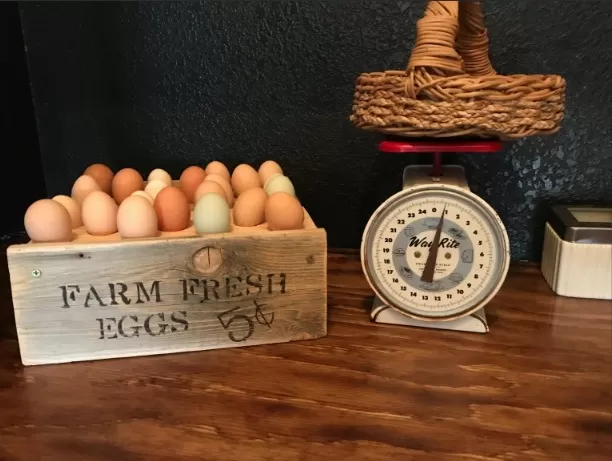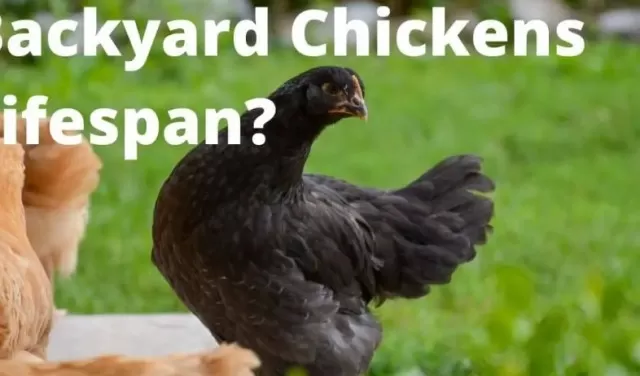Homeowners Who Don’t Sweat Egg Prices—Their Strategies.Raising your own chickens can be a rewarding and practical way to enhance your self-sufficiency, especially during times of supply issues and rising prices. Here are some valuable tips from experienced chicken owners to help you get started with your backyard flockHomeowners Who Don’t Sweat Egg Prices—Their Strategiesz. Raising your own chickens can be a rewarding and practical way to enhance your self-sufficiency, especially during times of supply issues and rising prices. Here are some valuable tips from experienced chicken owners to help you get started with your backyard flock
Before Feathering Your Nest with Chickens, Do Your Homework

While many communities do permit homeowners to raise chickens in their backyards, it’s essential to conduct some research and due diligence before you start your poultry venture.
Laura Henderson of Craig, Colorado, offers valuable advice to those contemplating chicken keeping: check with your local authorities first.
Henderson recommends reaching out to the local zoning authority as a first step.
They can provide you with information regarding whether keeping chickens is allowed in your area and whether any permits are required. Keep in mind that some communities may have restrictions on the number of chickens you can have, especially if you reside in a town, and they might prohibit roosters due to potential noise disturbances.
Additionally, it’s wise to be aware of any state-specific guidelines or recommendations related to testing for or reporting bird flu among your chicken flock.
By doing your research and ensuring compliance with local laws and regulations, you can embark on your chicken-keeping adventure with greater confidence and avoid any potential legal or neighborly issues down the road.
Understanding Egg Production in Chickens
Laura Henderson’s experience with chicken raising highlights an important aspect of poultry farming: egg production can vary significantly throughout the year.
She shared her insights, noting that when she first started with her five hens during the winter season, egg output was minimal, often yielding just one egg every other day. However, as spring arrived, egg production surged, sometimes providing A Dozen eggs or more in a single day.
This fluctuation in egg production is a common phenomenon in the world of chicken keeping.
It’s linked to the length of daylight hours, with hens typically laying more eggs when the days are longer, such as during the spring and summer months.
It’s crucial for chicken owners to be aware of these natural production fluctuations and to not be alarmed if there are periods of reduced egg laying, especially during the winter.
However, it’s also essential to be vigilant about any sudden and significant drops in egg production or if you notice the laying of softer or misshapen eggs, as these could potentially indicate underlying health issues, including the possibility of bird flu. Regular monitoring and care for your flock will help ensure their well-being and consistent egg production.
Egg-Laying Hens: No Rooster Required

Beth Thompson’s experience with raising chickens in her Tulsa, Oklahoma backyard dispels a common misconception about egg production.
She initially believed that having a rooster was a necessity for her hens to lay eggs. Thompson shared her journey, which began with the purchase of six baby chicks from a local feed and seed store.
As they grew, it became apparent that one of them was a rooster, which posed a challenge as roosters weren’t allowed where she lived. Consequently, she had to rehome the rooster to a farm in the countryside.
However, Thompson soon discovered the essential truth: hens do not require a rooster’s presence to lay eggs.
Her hens began laying eggs when they reached around six months of age, completely independent of a rooster.
This valuable insight highlights that if your goal is simply to collect eggs, a rooster is not a necessity.
Hens are more than capable of laying eggs on their own. If you’re interested in starting your backyard flock, you can easily acquire chicks like the ISA Browns mentioned, available at places like Tractor Supply.
Adding Variety to Your Flock
Beth Thompson’s decision to diversify her backyard coop by introducing A Fancy chicken brought a delightful twist to her poultry experience.
Her initial chickens were all white leghorns, a common breed seen everywhere. However, inspired by the captivating chickens she came across in poultry magazines, she decided to introduce a splash of color to her flock by acquiring an Ameraucana hen.
This decision not only introduced beautiful gold and brown feathers to her brood but also added an exciting element to the egg-laying process.
The Ameraucana hen laid eggs with distinctive blue shells, creating a visually striking addition to Thompson’s egg collection. She noted that while the shell color differed, it didn’t alter the taste of the eggs.
Thompson’s experience underscores the joy of diversifying your flock with various chicken breeds, each offering its unique characteristics, whether in appearance or egg attributes.
It’s a delightful way to infuse some variety and uniqueness into your backyard poultry adventures.
Prepare for Chicken Care

Linda Hime from McPherson, Kansas, offers valuable advice for new chicken owners: always have a supply of essential chicken-tending supplies readily available.
While chickens are generally healthy when provided with a nutritious diet, it’s essential to Be Prepared for any unforeseen health issues or injuries that may arise.
Hime suggests stocking up on various supplies, including antibiotic ointment, gauze, dog nail clippers (useful for beak and nail maintenance), electrolytes (to address dehydration), and any other medications or ointments recommended by your veterinarian.
Having these supplies on hand ensures that you can promptly care for your chickens if they become injured or fall ill.
Moreover, Hime emphasizes the importance of gloves when handling chickens.
Clean gloves, along with proper clothing and hand hygiene, are crucial for preventing the spread of diseases like bird flu. Regularly monitoring your chickens’ health allows you to spot potential symptoms early.
If you suspect bird flu, it’s vital to report it to your local or state authority immediately. Taking swift action and isolating any affected birds can help prevent further spread, and in cases of confirmed infection, humane culling may be necessary to contain the outbreak.
*The information is for reference only.